
I have safely arrived in New Orleans.
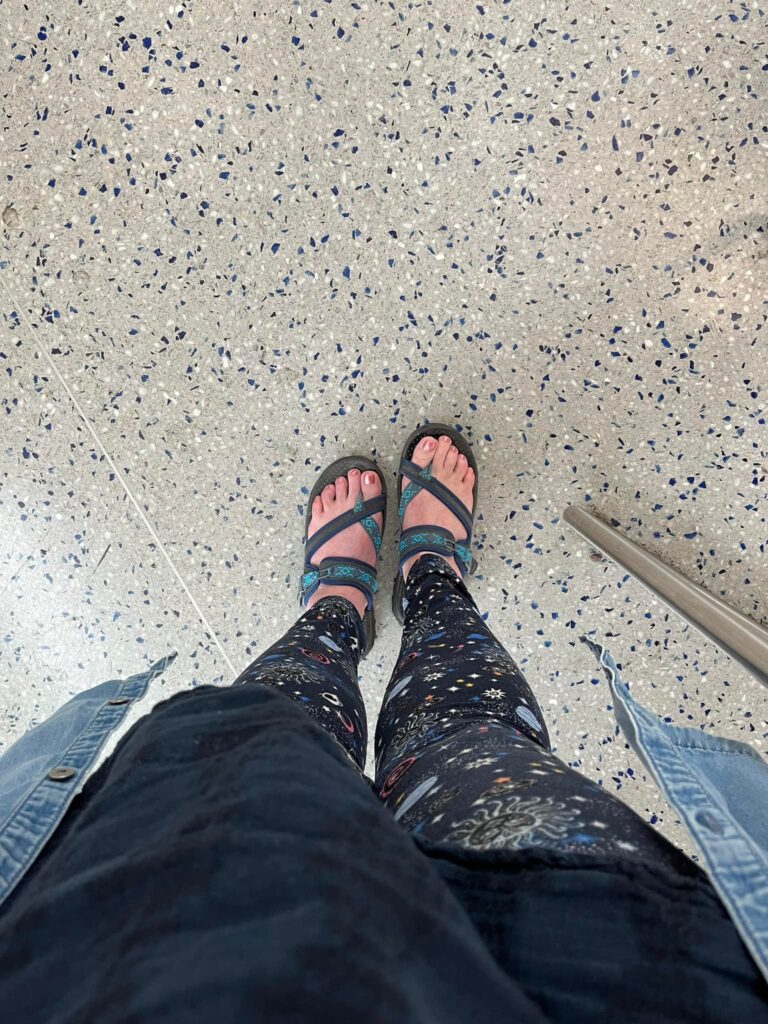
I took the requisite photo of my feet at the airport, a strange ritual I began doing about a decade ago. I don’t remember how I started it. I am thinking it must have been after I acquired my first smart phone, these miraculous machines with their built-in camera capacity. I know I am not the only one to do it. I know I didn’t start the trend; I am much more a trend-follower than setter.
It turns out that I arrived just in time for a squall line to visit the area – it’s moving fast across much of the nation. As I type, there is booming thunder and lots of rainfall. The guy on the weather channel noted that this rain falls on top of ground that is still wet from recent other rains. And just last week outside of NOLA a tornado touched down, causing damage and killing a person, so I know that you have to take this stuff seriously.
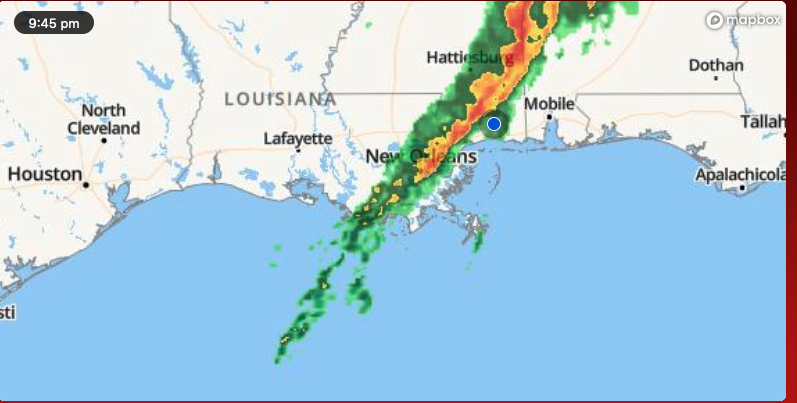
As part of my preparations for this trip, I listened to Colette Pichon Battle. Both an interview with her by Krista Tippett. And her 2019 TED talk. Ms. Battle is “a generational native of Bayou Liberty, Louisiana” and founder of the Gulf Coast Center for Law & Policy, of which she is the Co-Executive Director. She knows Louisiana and she knows weather and she knows climate change.
In her interview with Krista Tippett, which took place in Minnesota in the winter, she talks about how one way to know place is to know weather. Yet, with extreme weather brought about by the climate crisis, it is harder and harder to know weather. The knowledge passed down by generations no longer applies.
Here’s an excerpt from that interview:
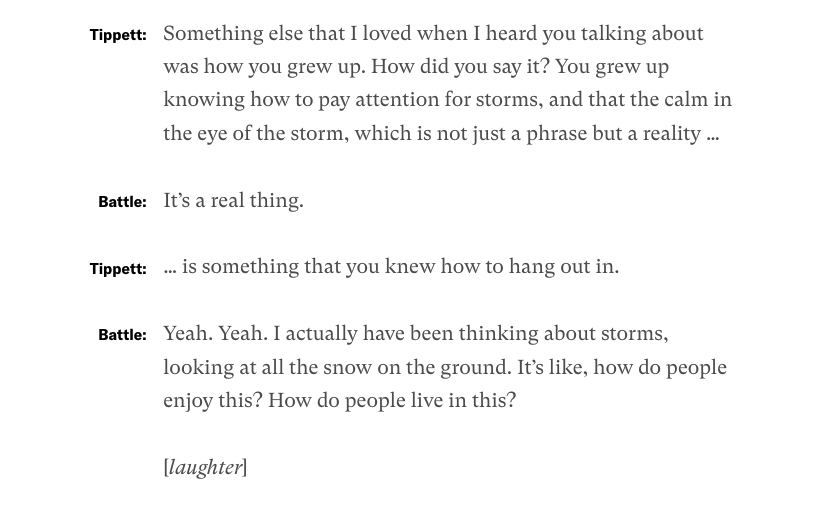
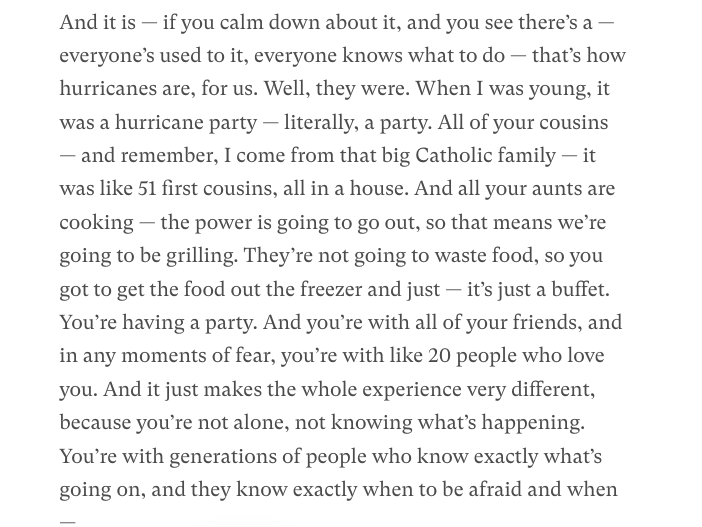
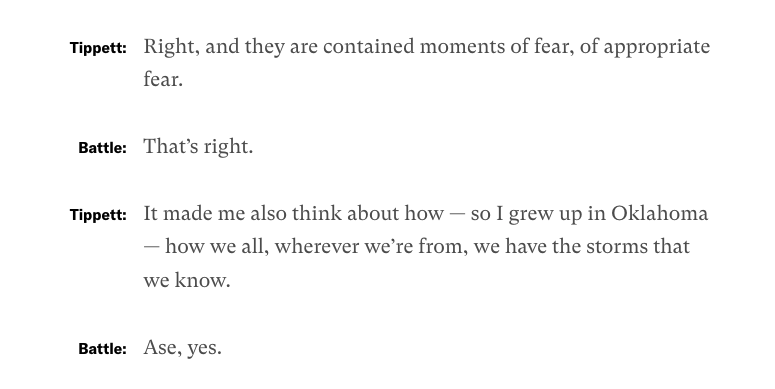
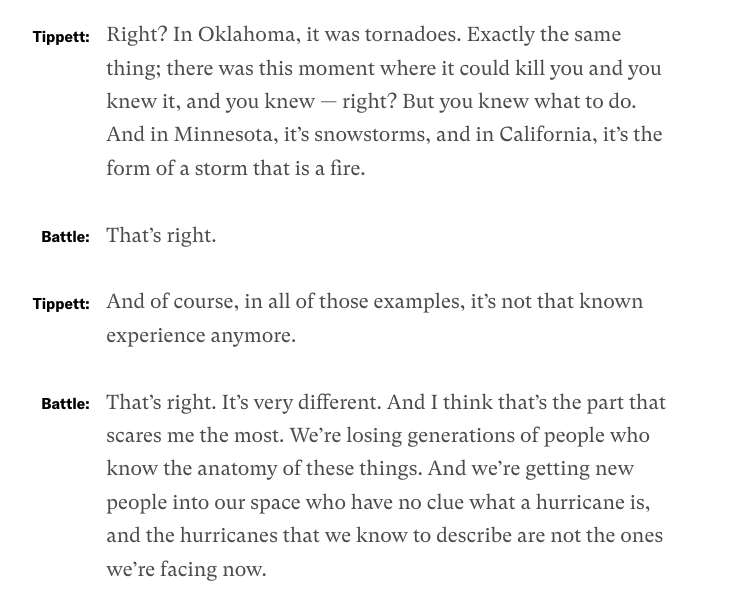
I know a version of this. I know a version of knowing a place through its weather. I grew up as the granddaughter and great granddaughter and niece (and now cousin) of farmers. In generations of my family, weather is the first thing that you comment on ~ not to be polite, but because it was essential. While I have inherited this in a mild fashion, it doesn’t ring wholly true for me – I did not grow up on the farm, my mother having left and never looked back. But it’s in me, a gift of the generations, a gift of the ancestors. Even if I find it a boring way to start a conversation.
And here I am, in a strange place, with strange weather that feels ominous. As long as I stay safe, I guess I will take this storm as the gift it is: a reminder that I know so little and can learn so much. A reminder to remain humble. A reminder to stay curious. And a reminder to exercise a modicum of caution.
That’s right. It’s very different. And I think that’s the part that scares me the most. We’re losing generations of people who know the anatomy of these things. And we’re getting new people into our space who have no clue what a hurricane is, and the hurricanes that we know to describe are not the ones we’re facing now.
Colette Pichon Battle, in interview with Krista Tippet on the public radio show, On being
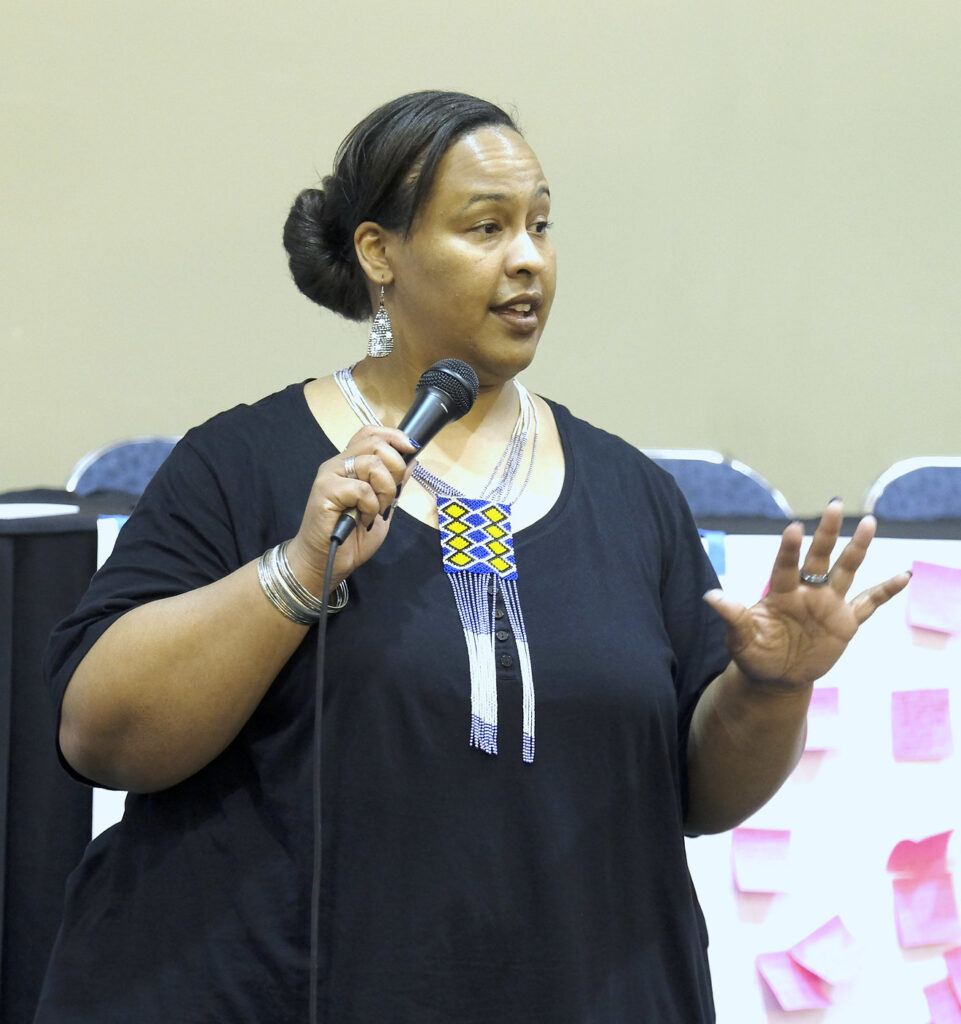
The primary reason that I am on this trip is to honor those that have become known as the Lost Souls, or the Lost Souls of 1818; to visit sites that we, or at least I, speculate are a part of their story. Also, I am on this trip to visit sites sacred to the Civil Rights history of this nation.
And yet I have always known that part of what I will find here is a story of climate change. Of climate crisis. Of climate constriction. Of climate collapse. And of those fighting for climate justice. Ms. Battle is just one of these people, a powerful voice rooted in place. Rooted in this place. Rooted in a place that is disappearing because of sea level rise.